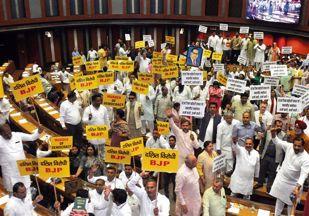Photo for representational purpose only. ANI
Oklahoma (US), May 11
Taste is a complicated neurological experience that has the potential to reveal vast, and maybe startling, information on how the brain makes sense of sensations and the organisation of brain networks. A National Institutes of Health-funded study conducted by Christian H. Lemon, Ph.D., an associate professor in the Department of Biology in the Dodge Family College of Arts and Sciences, aims to better understand how the brain processes taste and how those neural connections might change.
Taste is associated with a variety of brain functions, including the pleasure of tasting something sweet. Taste is a component of flavour, and it includes the pain felt while tasting a hot pepper. There is, however, a knowledge deficit on how taste and flavour preferences develop and alter through time.
"Taste is a component of flavor; it contributes sensations like saltiness and sweetness. When we're eating food, we get a lot of pleasure from taste and flavor, but taste is actually a sensory system that we really don't fully understand in terms of how it works in guiding eating behavior and also how it works in the brain," Lemon said.
This project will build on a discovery made by Lemon's research group while studying a part of the brain where taste sensations can excite neurons in the midbrain region. Importantly, many other senses from various parts of the body are processed in the same neural location, with preliminary data suggesting some body senses can activate brain cells excited by tastes. By determining how neurons are receiving signals for taste and touch sensations, Lemon's study hopes to better understand how these integrations happen and whether it is reflective of an emotional correlation.
"There is a part of the brain that takes in sensory information from basically almost all over the body, and taste is a part of this. We're wanting to understand, essentially, how taste is mapping into this part of the brain, along with all of these other body sensations as well, with the idea that if we can understand this it might actually tell us more about how taste works and how the taste system and other senses are organized, and why there appears to be neural overlap between them" he said.
Lemon believes this neural correlation may be evidence of the brain "multitasking", making use of limited brain cells to perform multiple functions for the body. Past research suggests there is a pattern to the way these brain signals are being put together that Lemon believes to be reflecting the emotions elicited by different sensations.
"Studies in the new grant will combine molecular, genetic and neurophysiological testing to examine the organization of brain circuits that support the intersection of taste and touch sensations, and how these circuits work to influence behavior," he said.
Join Whatsapp Channel of The Tribune for latest updates.



























